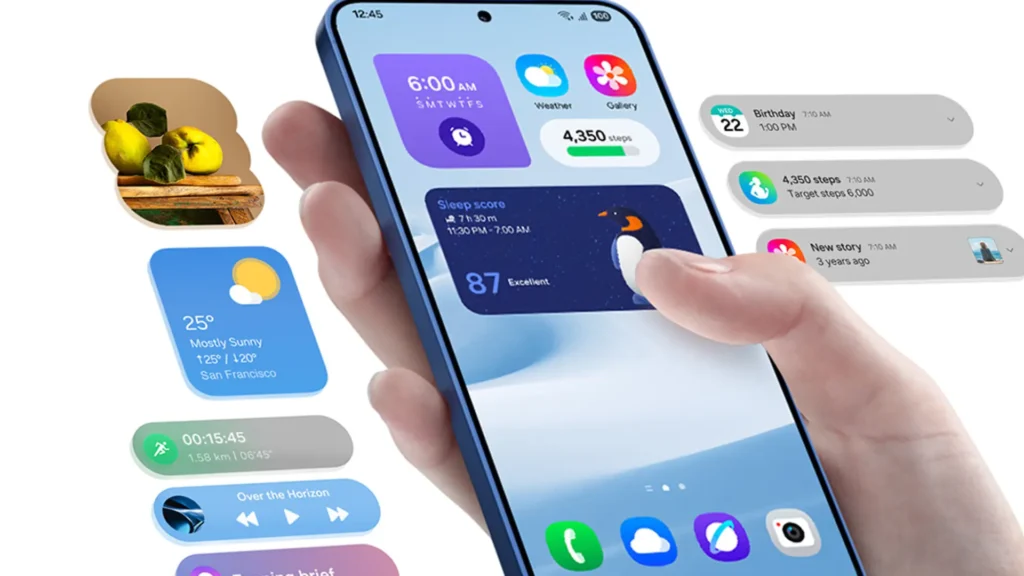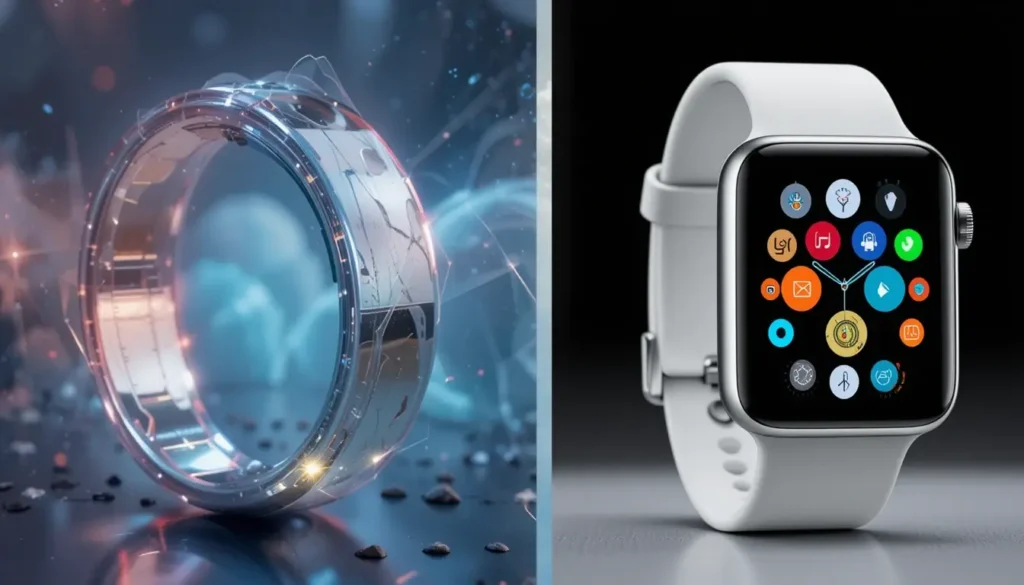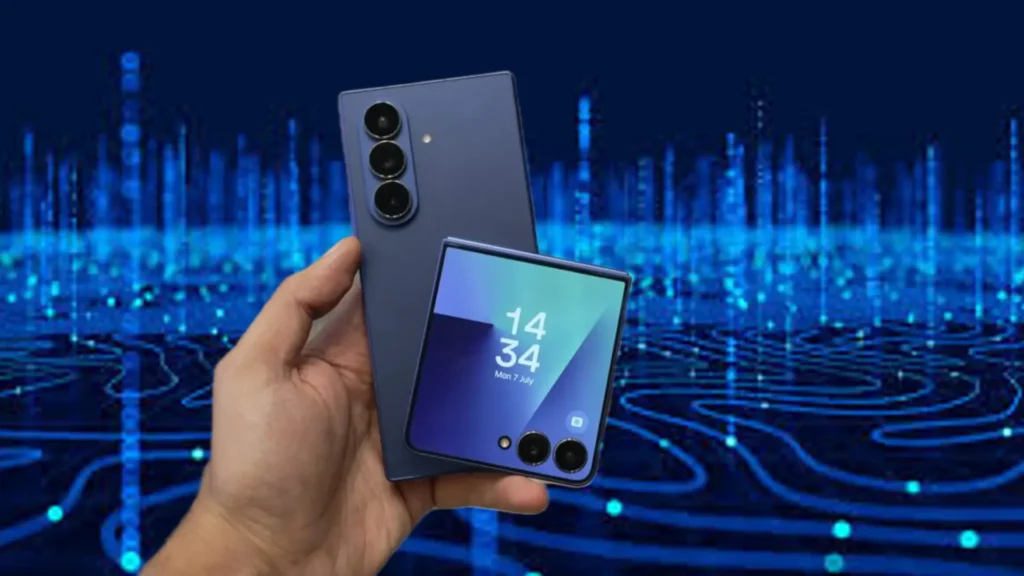A new Galaxy feature tracks your eyes in ways Apple does not. When you look away, it acts for you. It slows down battery use and protects your privacy. Stay with me—you will soon see why this matters.
This feature works all day long. Your phone notices when you stop watching. It pauses video or dims the screen without you lifting a finger. Apple phones do not offer this automatic behavior. That difference can save battery, reduce accidental touches, and guard what you see. That is why you should care.
How It Works
Samsung originally called this Smart Pause on the Galaxy S4. It uses the front camera to track your face and eyes. If the phone sees that you look away, it pauses any video playing. When you look back, it resumes the video automatically. The system checks your head and eyes constantly in ambient light. It recognizes your attention and acts quickly.
Modern Galaxy phones support upgraded versions under Advanced Intelligence and Galaxy AI. These run on One UI 8 and Android 16. They keep most processing on-device for privacy and speed Wikipedia+1. The face tracking runs locally and data stays inside your phone unless you opt into cloud AI.
This is not a toy feature. It guards your privacy: if someone passes your phone or you walk away, the video or content stops immediately. It cuts battery waste while you are not watching. It avoids accidental taps if the phone senses you are not looking. It does this all automatically.
Each time you walk away, your battery saves minutes. Every time someone else peeks, your phone steps in. These small gains add up through the day. That builds trust and removes little annoyances. That is value you did not know you needed.
What Apple Offers
Apple’s Face ID checks your eyes to unlock the phone. It knows if you look at the screen, but the system does not pause content. It does not dim brightness automatically when you glance away. It does not mute audio or stop activity. Everything rests on manual action by you.
Apple lacks a Smart Pause system. They have not built video auto‑pause, eye-aware screen dimming, or idle locking based on attention. That gap is what Galaxy fills now—and it matters.
Picture watching a video. You look away for a second. Your Galaxy pauses. The video stops. You don’t miss a moment. Now picture doing the same on an Apple phone. The video keeps playing. You might miss a key part. You might drain battery. You may see a private message by mistake. That tension grows if you realize which outcome serves you better.
Smart Pause works across apps and content. In reading apps, the screen can dim when you look away. In maps, directions pause if you stop looking at the map. In calls, muting can happen if your face is not visible. In news or article apps, the screen may go dark to prevent burn-in. These layers build trust across use cases.
Why It Has Power
It protects battery life in real use. That matters on long trips or days away. It protects privacy when someone glimpses your screen. It prevents accidental taps if the phone is on a table or in a bag. Each small action adds to a smoother, safer experience. This shifts how you feel about your phone: from tool to helper.
By now, the main insight is clear. The phone knows when you look away. It acts automatically. That is not common in mainstream phones. Apple leaves those tasks to you. Galaxy does it for you. That is a leap in user awareness and support.
This creates a sense of control without effort. Your attention and battery are preserved. Screen leaks and accidental touches shrink. The feature feels subtle but powerful. That payoff resonates deeply.
You feel more secure. When you walk off, nothing continues. When someone leans over, content hides. You feel smarter using your phone. It cares. That creates small bursts of satisfaction each time. That dopamine trigger comes when you notice: oh, my device just did the right thing.
This feels different from the norm. Phones normally wait for you to tap or swipe to pause. Here, the phone anticipates your move. It changes the script: you do less, it adapts. That surprise in behavior breaks expectations. It grabs attention.
Risks and Considerations
The camera stays on more than usual. That may worry privacy‑minded users. Light conditions affect reliability: in low light or bright backlight it can fail. Some third-party video players may not support Smart Pause reliably; it works best with stock or supported apps Android Central Forum.
Samsung provides checkboxes in Smart Screen settings so you can turn it off. Privacy settings and permission manager show which apps use camera access.
Galaxy AI may evolve this tracking into emotion or focus detection. Samsung has built a suite of AI tools starting in early 2024, updated through mid‑2025. Future versions could sense whether you are tired or stressed and adapt content. Auto pause games when you zone out, auto lower brightness when you stop paying attention. Samsung may expand to these behaviors soon.
Apple might develop similar ideas later. But now Galaxy leads in attention-aware interactions. That hints at deeper personalization ahead.
Apple could extend face detection into automatic pause. They could dim or lock the screen when idle attention is lost. They could optimize power in smart ways. They could offer eye-aware features across apps rather than just to unlock. That would front-load convenience and closeness.
On a Galaxy phone: open Settings → Advanced Features (or Smart Screen) → find Smart Pause, Eye Tracking, or Keep Screen On While Looking. Enable the toggle. Ensure camera permission is granted. Then the system tracks your face across supported apps and pauses, dims, or locks automatically.
You can also adjust Behavior in Battery and Device Care or Security & Privacy → Permission Manager → ensure the feature has proper camera permission.
This new Galaxy feature tracks attention and acts when you look away. Apple devices do not pause video, dim screens, or lock on idle gaze. Galaxy does. That gives protection, power savings, and ease in one feature. It feels intelligent. It feels helpful. It works quietly and behind the scenes. That is the clean ending.
With this feature, your phone learns small things about how you watch. It saves power. It guards your screen. It makes your days smoother. You should try it now.



